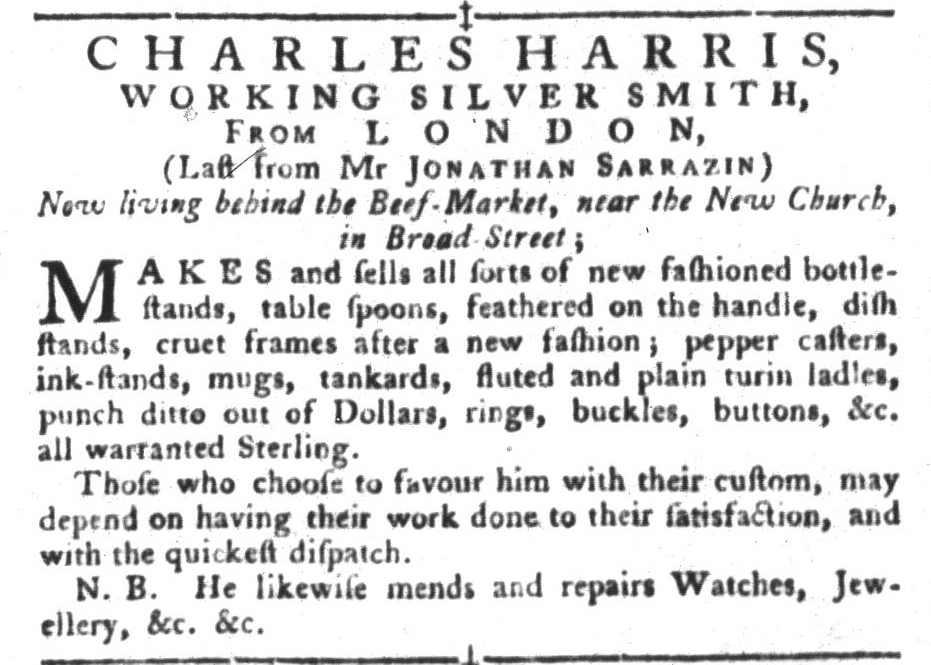What was advertised in a colonial American newspaper 250 years ago today?

“CHARLES HARRIS, WORKING SILVERSMITH, FROM LONDON, (Last from Mr. JONATHAN SARRAZIN.”
Like many other artisans who advertised in colonial newspapers, Charles Harris, a silversmith, provided his some of his credentials in the notice he inserted in the August 16, 1768, edition of the South-Carolina Gazette and Country Journal. He first asserted his connections to London, the cosmopolitan center of the empire, as a means of assuring prospective customers that he was indeed aware of the current tastes and styles. Invoking his London origins gave the silversmith cachet while simultaneously suggesting his familiarity with “all sorts of new fashioned bottle-stands” and “cruet frames after a new fashion.” He paid attention to the smallest details, even when making “table spoons, feathered on the handle.”
Yet Harris had not just arrived in Charleston directly from London. His advertisement indicated that he had already spent some time in the colony, employed in another workshop before establishing his own. Even though he had migrated “FROM LONDON,” Harris informed readers that he was also “(Last from Mr JONATHAN SARRAZIN),” a jeweler who ran a shop at the corner of Broad Street and Church Street. Harris’s former employer, who had recently published a series of advertisements in all three newspapers published in Charleston, was now one of his competitors. Harris took advantage of their former affiliation to market his own wares. Prospective customers who had previously secured Sarrazin’s services had likely acquired items that Harris took a hand in producing. Rather than his work being completely unknown in the local marketplace, as was the case for artisans newly arrived from London, some of his wares had already found their way into the hands of local consumers. This allowed Harris to piggyback on the reputation that Sarrazin had cultivated among residents of Charleston.
Harris deployed his advertisement as his résumé. He included vital work history that allowed prospective customers to determine if they wished to consider availing themselves of his services. Establishing that he had already made contributions to his trade in the local marketplace gave Harris additional credibility in his pledge to potential clients that they “may depend on having their work done to their satisfaction, and with the quickest dispatch.”
